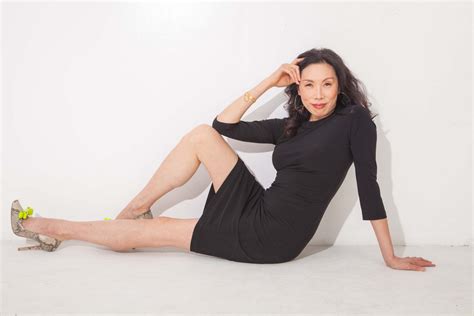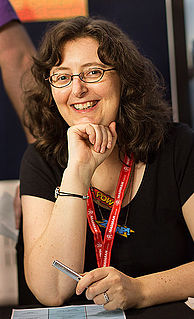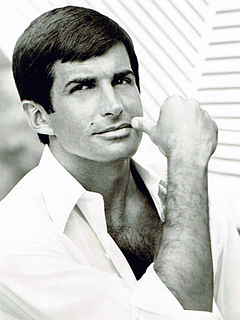A Quote by Jeanette Winterson
Life was a pre-death experience.
Quote Topics
Related Quotes
In a study we did of bereavement, we found that rather impressive numbers of widows and widowers had not simply gone back to their pre-loss functioning, but grown. This was due to a kind of increased existential awareness that resulted from this confrontation with the death of another. And I think it brought them in touch with their own death, so they began to experience a kind of preciousness to life that comes with an experience of its transiency.
Death is not the end, but the beginning of a new life. Yes, it is an end of something that is already dead. It is also a crescendo of what we call life, although very few know what life is. They live, but they live in such ignorance that they never encounter their own life. And it is impossible for these people to know their own death, because death is the ultimate experience of this life, and the beginning experience of another. Death is the door between two lives; one is left behind, one is waiting ahead.
The conquest of the fear of death is the recovery of life's joy. One can experience an unconditional affirmation of life only when one has accepted death, not as contrary to life, but as an aspect of life. Life in its becoming is always shedding death, and on the point of death. The conquest of fear yields the courage of life. That is the cardinal initiation of every heroic adventure - fearlessness and achievement.
Birth leads to death, death precedes birth. So if you want to see life as it really is, it is rounded on both the sides by death. Death is the beginning and death is again the end, and life is just the illusion in between. You feel alive between two deaths; the passage joining one death to another you call life. Buddha says this is not life. This life is dukkha - misery. This life is death.
The greatest mystery in life is not life itself, but death. Death is the culmination of life, the ultimate blossoming of life. In death the whole life is summed up, in death you arrive. Life is a pilgrimage towards death. From the very beginning, death is coming. From the moment of birth, death has started coming towards you, you have started moving towards death.
Everybody is afraid of death for the simple reason that we have not tasted of life yet. The man who knows what life is, is never afraid of death; he welcomes death. Whenever death comes he hugs death, he embraces death, he welcomes death, he receives death as a guest. To the man who has not known what life is, death is an enemy; and to the man who knows what life is, death is the ultimate crescendo of life.
By 'coming to terms with life' I mean: the reality of death has become a definite part of my life; my life has, so to speak, been extended by death, by my looking death in the eye and accepting it, by accepting destruction as part of life and no longer wasting my energies on fear of death or the refusal to acknowledge its inevitability. It sounds paradoxical: by excluding death from our life we cannot live a full life, and by admitting death into our life we enlarge and enrich it.
I've been in the sun most of my life. I've gone to skin doctors and they'll say to you, 'We should remove this because it's pre-cancerous,' and I'll say, 'Explain pre-cancerous to me.' I'll listen for about twenty minutes and I'll say excuse me, 'Is pre-cancerous like pre-dead? So you're saying it could turn into cancer but it's not cancer?'
Laughter. Yes, laughter is the Zen attitude towards death and towards life too, because life and death are not separate. Whatsoever is your attitude towards life will be your attitude towards death, because death comes as the ultimate flowering of life. Life exists for death. Life exists through death. Without death there will be no life at all. Death is not the end but the culmination, the crescendo. Death is not the enemy it is the friend. It makes life possible.


































